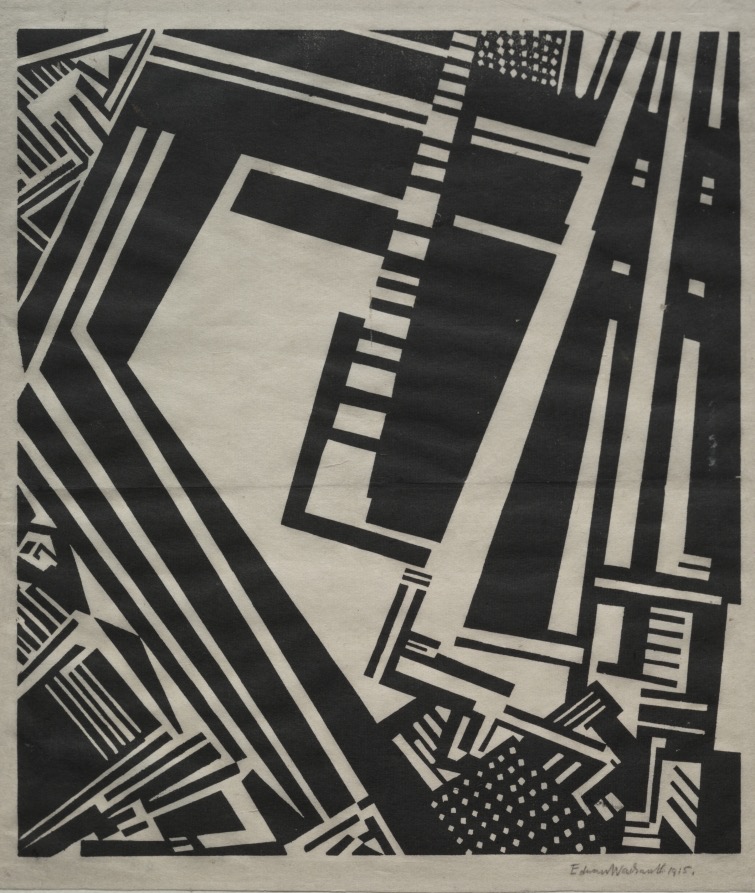IndustrialCivility

Edward Alexander Wadsworth: Illustration (Typhoon) (1914–1915)
" … people like me can only ever be a visitor. "
We inhabit a culture comprised of innumerable subcultures, each with unique rules and protocols. These subcultures might be the many we claim to come out of, E Pluribus Unum. Encountering any subculture can make anyone more aware of their own, which ordinarily exists like a fish's water, present but not accounted for. We receive little more than glimpses of other's subcultures, often through cues that seem somehow alien, different. I recently encountered one that I found enduring, heartwarming. I labeled it IndustrialCivility because it appeared to me, in my experience, most prevalent in industrial settings, a standard set of protocols common to those enterprises. These seem starkly different than the practices I've experienced in offices, for instance, or in clinics.
IndustrialCivility first appears orderly with almost a military discipline. Everything seems to have a place and inhabit it. Inventories are never haphazard but rigorously administered. Proper forms hold specific information, and each stage of every operation represents a particular regulation, a separate intention. Lose the stapler, and the whole process grinds to a halt for a second while the operator adapts to a replacement paper clip. The misplaced stapler clearly should not have happened.
I mentioned the almost military discipline because I wouldn't recognize actual military discipline if I saw it in operation. Having never been in the military myself, I've only caught distant glimpses of its protocols in action, mostly marching and saluting. I cannot successfully intuit what that subculture might expect of itself, but I suspect that whatever it is would likely seem rigorous. IndustrialCivility seems looser, more everyday human. When four-thirty comes, everyone goes home to return promptly at seven-thirty the next morning. Somebody's very likely tasked to bring doughnuts. Every office will feature a simmering coffee pot. Offices will be clearly delineated between workers and bosses, though everyone passes through a warehouse to access their office.
The business itself will seem almost anonymous. Its building will stand in a neighborhood of similar structures, surrounded by expansive parking lots and equipment yards. There will be no sidewalks because nobody walks there. Most drive trucks. They do not possess a prestigious address, nor do they ever care to. They know what they do, and they do that well. There's no identity crisis or search for deeper meaning. The operation is just what it seems to be, no questions asked. They will process your order precisely and provide their service with evident pleasure. Nobody's working themselves to death, and everyone's steadily working. Each day's job will get done on time.
Since I rarely encounter this subculture, it charms me. I know it would drive me crazy to work within its structures, and I revel in experiencing it in action. The fact that it seems so alien attracts me, and I want to know more. I want to understand its secrets and its satisfactions. How does one become an employee of such an enterprise? What do the career paths look like from the inside? I've driven past thousands of industrial parks, knowing that I do not belong there. They are exclusively for the working class, not the cerebral like me. Any lift truck driver could thrive there, but people like me can only ever be a visitor.
©2023 by David A. Schmaltz - all rights reserved


